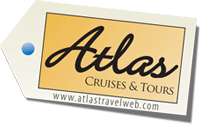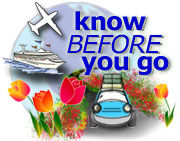I have been on several Caribbean cruises throughout the years, so I tend to be a “rebel” and skip things like the lifeboat drill, the port presentations and the final meeting on the last of the cruise that explains the disembarkation process, customs declaration, etc.
On my last cruise, I had some down time and decided to sit in on a presentation for an Island we had never visited. After touting the glory of the port we were going to visit, the cruise director then passed out the common list of “approved/recommended” stores. It is safe to shop at these stores, yes. It is the best pricing, not always. It really depends on what you are purchasing. If it is jewelry or something you may need to return, then yes by all means use these stores only, but for souvenirs and liquor, for example, don’t overpay. Shop around several stores for the items you are interested in.
Now back to my story…the cruise director had recommended a duty free liquor store and stated in the meeting that we could purchase as many liters as we wanted and pay no duty. Next day, walking around town we found one of the “anointed” liquor stores. Thinking of all the money we could save, we bought 10 liters of Tortuga Rum, which can only be found on certain islands. The store even arranged to have everything delivered to the ship for us at no charge.
All went well, until we got to customs. We were pulled out of line and taken to a desk where 3 uniformed men were seated. Had my husband tried to sneak in those Cuban cigars after all? After several moments of silence and dirty looks between my husband & I, we were advised that we owed “duty,” because we had purchased in excess of our allowance of liquor. My husband then blamed me of course, because I was the one that attend the meeting. Long story short, we paid our tax of $20, which would have paid for an additional 1.5 bottles of rum.
Make sure and check online for the allowance for each place you are visiting ahead of time, as it is clear that the ship employees do not always have your best interest in mind, or just may not be aware of all the facts. You can easily find the information on each island’s tourist board website.
Here is some general information for the Caribbean:
The duty-free exemption, also called the personal exemption, is the total value of merchandise you may bring back to the United States without having to pay duty. You may bring back more than your exemption, but you will have to pay duty on it. In most cases, the personal exemption is $800, but there are some exceptions to this rule, which are explained below.
Exemptions
Depending on the countries you have visited, your personal exemption will be $200, $800, or $1,600. There are limits on the amount of alcoholic beverages, cigarettes, cigars, and other tobacco products you may include in your duty-free personal exemption. The differences are explained in the following section.
The duty-free exemptions ($200, $800, or $1,600) apply if:
- The items are for your personal or household use or intended to be given as gifts.
- They are in your possession, that is, they accompany you when you return to the United States. Items to be sent later may not be included in your $800 duty-free exemption. (Exceptions apply for goods sent from Guam or the U.S. Virgin Islands.)
- They are declared to CBP. If you do not declare something that should have been declared, you risk forfeiting it. If in doubt, declare it.
- You are returning from an overseas stay of at least 48 hours. For example, if you leave the United States at 1:30 p.m. on June 1, you would complete the 48-hour period at 1:30 p.m. on June 3. This time limit does not apply if you are returning from Mexico or from the U.S. Virgin Islands. (See also the section on the $200 exemption.)
- You have not used all of your exemption allowance, or used any part of it, in the past 30 days—for example, if you go to England and bring back $150 worth of items—you must wait another 30 days before you are allowed another $800 exemption. (See the section on the $200 exemption.)
- The items are not prohibited or restricted as discussed in the section on Prohibited and Restricted Items. Note the embargo prohibitions on products of Cuba.
Joint Declaration
Family members who live in the same home and return together to the United States may combine their personal exemptions. This is called a joint declaration. For example, if Mr. and Mrs. Smith travel overseas and Mrs. Smith brings home a $1,000 piece of glassware, and Mr. Smith buys $600 worth of clothing, they can combine their individual $800 exemptions on a joint declaration and not have to pay duty.
Children and infants are allowed the same exemption as adults, except for alcoholic beverages and tobacco products.








